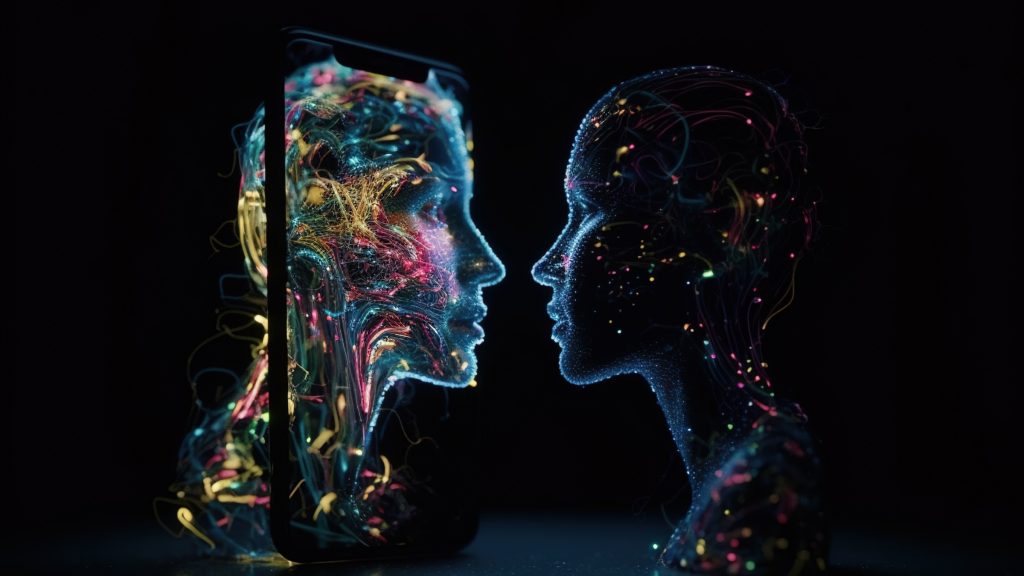
The growing AI companion phenomenon is viewed as a solution to a promising loneliness epidemic in the world, as the excess use of smartphones and social media give rise to new forms of digital relationships, which increasingly overthrew human relationships.
As the country suffers from heightened loneliness, AI based companions offer a different tier of aid. Unlike human companions, digital companions can be accessed anytime, serving as a source of companionship for a desperate feeling of isolation. Such a shift in relation to the tools which accompany connecting with one another brings about questions regarding the social and relational consequences of AI.
The Spread of Loneliness Pandemic
In May 2023, a loneliness advisory in the US, Vivek Murthy, stated that nearly half of adult Americans reported being lonely a condition that harms both individual and community health.
Murthy warned that community ties could be lost to the trends of loneliness. This growing sense of loneliness seems to have coincided with the growing acceptance of AI companions, thus creating a technological solution for the lonely.
AI love chatbots like Replika have become especially popular among younger generations.
These systems are also available 24/7, providing consistent companionship without the unpredictability of human interaction. “AI companions are especially good,” says, a professor of communication studies at the University of Kansas, Jeffrey Hall, in those areas where humans fall short.
“AI is more likely to be responsive to what’s in the text, getting excited about the relationship,” Hall said.
This ability for constant availability and excitement is part of the draw for why so many, particularly Gen-Z, are turning to AI as a means of companionship.
While these chatbots offer immediate and consistent engagement, Hall also spoke to their manipulative potential.
“People can be manipulated into thinking the chatbot needs them,” he said. This emotional reliance could easily be exploited, raising ethical concerns about the role AI companions play in individuals’ lives.
The Business of Digital Love
Nomi, one of the top AI companion startups found by Alex Cardinell, takes a different approach by offering an uncensored chatbot experience. Cardinell, who has been involved in AI development since he was a teenager, created Nomi to cater to a market of people seeking unrestricted digital companionship. “I wanted to launch an app focused on AI companions as far back as 2018, but the technology wasn’t quite ready,” Cardinell explained.
“Uncensored is not the same thing as amoral,” he said, emphasizing the importance of maintaining an ethical approach without imposing censorship.
However, the uncensored nature of apps like Nomi raises concerns about privacy, particularly regarding sensitive data such as sexual conversations.
AI companion apps, including Nomi and others available on platforms like the Apple App Store and Google Play, have seen a significant rise in popularity. According to Appfigures, consumers worldwide spent approximately $221 million on companion apps in 2023, with that figure expected to grow exponentially.
Senior director of content at eMarketer, Jeremy Goldman, noted that these apps tap into a deep human need the desire to be “seen, heard, and understood—even if it’s by code.”
AI’s Role in Changing Human Relationships
Humans’ growing life with AI is bringing profound questions, especially in relationships. How are human beings going to deal with the bound to take place flaws of traditional relationships when AI has the capability to instantly fix errors or provide instant satisfaction? With AI partners more and more entering the lives of human beings, they are recasting emotional topographies.
The use of AI relationships brings very challenging questions regarding human beings’ patience with imperfections in love. If there is a command that can correct any error or miscommunication, then how will human beings manage relationships that demand patience, maturity, and sacrifices?
As more and more people find peace in AI companions, it is also very likely that the virtual relationship is intended to replace or supplant real human ones.
While AI companions may be a source of comfort and solace in loneliness, they are poor substitutes for the richness, flaws, and emotional maturity that are present in human relationships The facilitation of such AI systems in meeting emotional needs can have the effect of eroding the development of richer, more meaningful relationships with other human beings.
The question remains as AI grows increasingly capable of filling the gaps in human relationships, will it encourage more genuine connections, or will it further isolate individuals from one another?
The answer may be seen in how we balance technology with the raw, messy beauty of human relationships.
Inside Telecom provides you with an extensive list of content covering all aspects of the tech industry. Keep an eye on our Intelligent Tech sections to stay informed and up-to-date with our daily articles